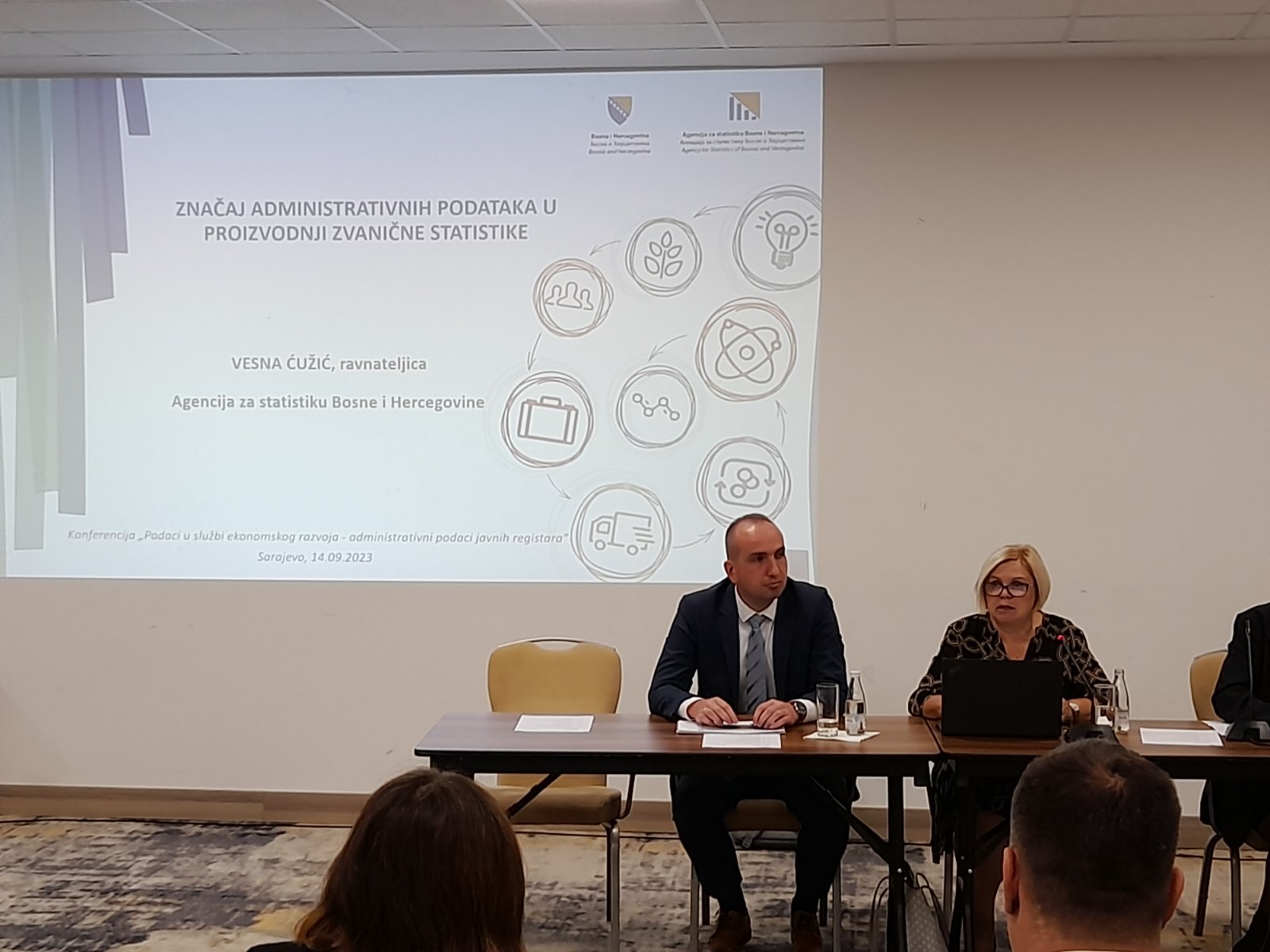From administrative to statistical data
Within the USAID's Local Works Project framework and organised by the Network for Building Peace, a conference on "Data in the Service of Socioeconomic Development: Administrative Data from Public Registries" was held in Sarajevo. Among other participants was Vesna Ćužić, the Director of the Agency for Statistics of Bosnia and Herzegovina.

Ćužić spoke about "The importance of administrative data for statistical purposes". This topic holds particular relevance for statistical institutions in Bosnia and Herzegovina due to European guidelines mandating the optimisation of statistical production by utilising existing administrative data. Furthermore, the growing demand for statistical information underscores the need to harness all available data sources, with administrative data being among the most crucial resources accessible at various administrative levels.
The conference aimed to map the existing status of administrative data sources at the municipal and city levels, as well as to outline the initiatives by relevant stakeholders to enhance the role of local authorities in accessing and utilising administrative data. The ultimate aim of using administrative data is to make this information readily available to citizens through various dissemination channels, including the websites of administrative bodies, statistical institutions, open data portals, and more.
When discoursing the significance of utilising administrative data, Ćužić highlighted two key requirements. The primary and essential requirement for establishing regular production of statistical indicators based on administrative data sources is having the necessary legal regulations in place, and the second requirement is converting existing administrative data sources into digital formats. Currently, most administrative data are still stored in various formats (hard-copy records and Excel files), with only a fraction available in digital form.
She also pointed out the advantages of employing administrative data sources in official statistics, which include reducing the burden on reporting units, decreasing data collection expenses, and elevating data quality and coverage.
One of the fundamental goals of statistical institutions is to create and maintain three crucial statistical registers in Bosnia and Herzegovina. These registers include a population register, a building and housing register, and a business register. This is achieved by effectively utilising and integrating data from administrative sources alongside data from statistical surveys. Among these three statistical registers, statistical institutions in Bosnia and Herzegovina have successfully established and regularly maintain the Statistical Business Register, as highlighted by Ćužić.
Therefore, as per Vesna Ćužić's statements, having an efficient public administration is of exceptional significance for official statistics. It not only enhances data quality but also improves services for citizens. Adopting modern IT solutions for digitalising processes enables statistical institutions to access extensive databases.
Considering the significance of generating timely and high-quality statistical data compliant with EU regulations and standards, the statistical institutions of Bosnia and Herzegovina, including the Agency for Statistics and the statistical institutes of the entities, have made considerable progress. Through the national IPA Twinning project, they have effectively identified potential administrative data sources spanning various statistical domains at both the entity and national levels. Collaborative efforts are already underway with some of these sources, with their data actively contributing to the production of statistical indicators. Concurrently, ongoing activities are focused on formalising cooperation with others.

